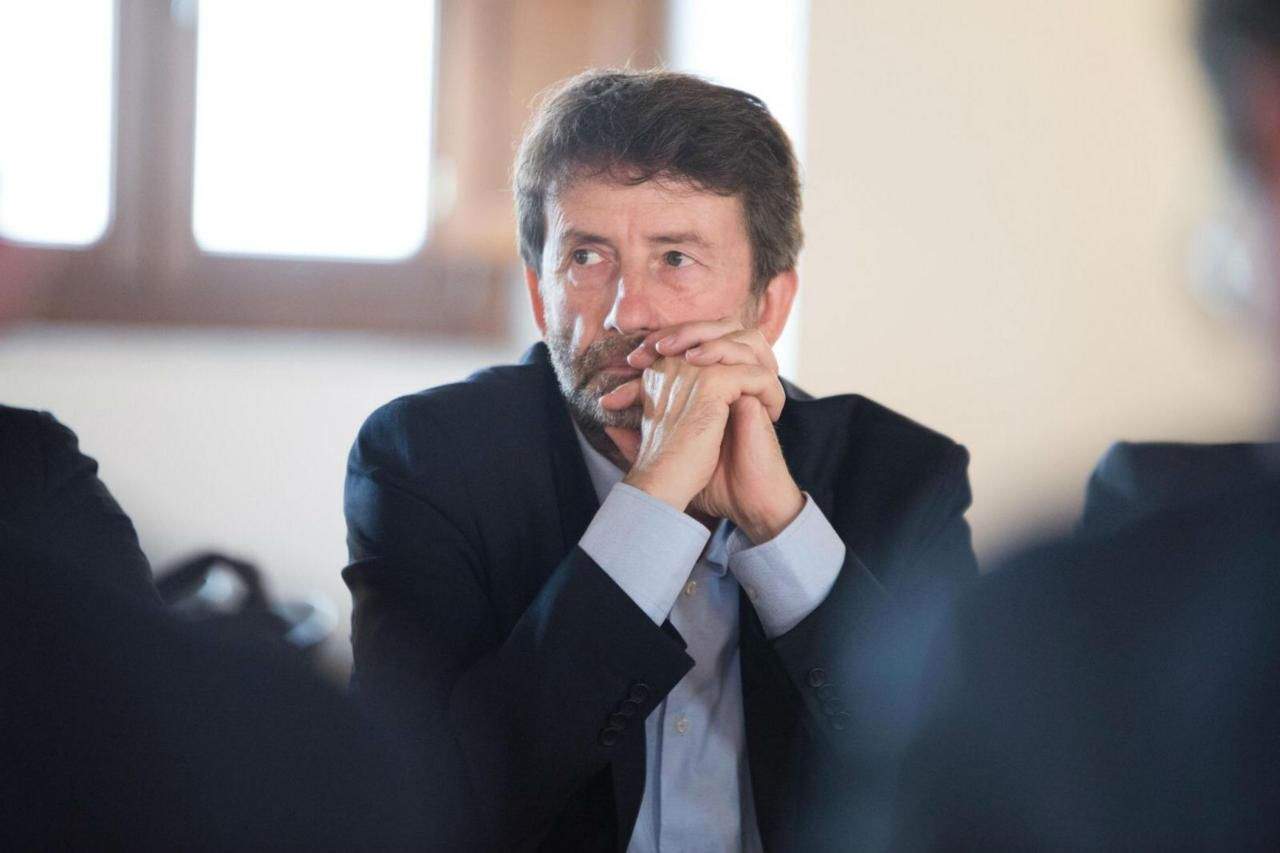Franceschini's priorities: tourism with spending capacity, high-speed rail and boroughs
Cultural Heritage Minister Dario Franceschini spoke last July 24 at a Symbola seminar entitled Italy’s Soft Power for Recovery. During his speech, Franceschini indicated what he thinks post-Covid Italy should do to boost tourism and culture.
“Among the many dramas of this Covid affair, human dramas, social dramas, and economic dramas,” Franceschini said in his introduction, “the centrality of investments and the role of tourism and culture for the economic choices of our country, and therefore of the protection and enhancement of all that is fundamental for tourism and culture, has also emerged in a much wider swath of public opinion and policymakers than those who already knew it. Every day there are a few people who remind us that tourism is 13 percent of GDP, and together with culture we would reach 20 percent of GDP: hearing this from people who have never followed these sectors gives us an opportunity. It has been understood what our deserted tourist cities mean, it has been understood what it means to have closed theaters, closed cinemas, closed bookstores, closed libraries. And so this shakeup has shifted some of the focus, we need to make sure that the focus remains high and that it doesn’t go back to the way it was, because one of the big issues for reflection that go far beyond our industry is whether the lockdown, which has entered so overbearingly into the collective and individual lives of societies and individuals around the world, will come to an end as a parenthesis, when it will be possible to get everything back to normal, or whether conversely there will remain things that societies and people have come to know during the lockdown. I think a lot of things will remain, I don’t think the model that it’s good just to be together in large numbers, to buy intangibles, to be in the crowd will return: I think many people have discovered the value of home, the value of silence, the beauty of solitude, slowness, that somehow there can be a rewriting of values. And in that, the space for Italy is a huge space if we know how to invest in safeguarding and protecting heritage and enhancing what we have.”
The first priority is theattraction of an educated, sustainable tourism with spending capacity, which, according to Franceschini, will have to continue the work done so far with initiatives such as the Year of the Cammini, the Year of Villages, the Year of Slow Tourism, the Year of Food, and the Year of Historic Railways (which, the minister noted, will be extended to 2021). “Since tourism will come back, and it will come back in the disruptive and impetuous way in which it had grown in recent years,” Franceschini continued, “we need to use this desert that is being crossed to redirect: we need to enhance those places, which are infinite in Italy, that have the possibility of attracting cultured, intelligent and respectful tourism. I don’t think our perspective is to go back to the faults we had before. Of course, for our economy and for our tourism businesses, we have to work together so that international tourism returns as soon as possible, but we have to work to direct it toward an educated and sustainable tourism with spending capacity, respectful of natural beauty, and able to understand the fragility of the places it passes through. This is a tourism that Italy exactly needs, so invest in tangible and intangible heritage, protect it, enhance it and make it a source of growth.”
“To do this,” he added, pointing to the second priority, infrastructure and in particular high-speed rail,“we also need infrastructure choices. I point to just two: I hope that the Recovery Fund resources will allow us to design works that we had given up designing because we thought we would never have the resources to do it. Now the resources are there, we need to have vision, look big and not just do business as usual. I point to just two that relate to culture, tourism, and the Mezzogiorno: the first theme is that the High Speed Railway cannot stop in Salerno but has to get to Sicily, has to get to the Mezzogiorno. The other issue is the infrastructure gap that in Italy is not only between north and south but is also between Adriatic and Tyrrhenian: the big airports and high speed are on the Tyrrhenian side, on the Adriatic side there are no big airports and there is a nineteenth-century single-track railway that damages hundreds of kilometers of coastline. So I think we need to have the strength and the ability, as has been done in the past since the 1950s when the Autostrada del Sole and then the high-speed rail was designed, to design a high-speed line from Taranto and Trieste that moves away from the sea and flanks the highway, particularly in the section from Pesaro to Termoli, and that will allow a great operation of recovery of building and urban heritage without land consumption, one of the great evils of Italy in our time.”
Finally, in conclusion, the third priority is to invest in the redevelopment of villages, particularly in the Apennines and the South. “Another operation will be a project for the redevelopment of villages,” Franceschini said, finishing, “we have been working on it and now it is time to allocate resources. There are thousands of uninhabited villages almost all along the Apennine ridge, so that we can repopulate them and bring them back to life. Those that have been transformed into widespread hotels and those that have been able to invest in heritage recovery have had tremendous development. So I think of a plan with a lot of resources to recover public and private building heritage and to repopulate those places, to transform them through accommodation capacity, cultural initiatives, repopulation.”
 |
| Franceschini's priorities: tourism with spending capacity, high-speed rail and boroughs |
Warning: the translation into English of the original Italian article was created using automatic tools. We undertake to review all articles, but we do not guarantee the total absence of inaccuracies in the translation due to the program. You can find the original by clicking on the ITA button. If you find any mistake,please contact us.



























